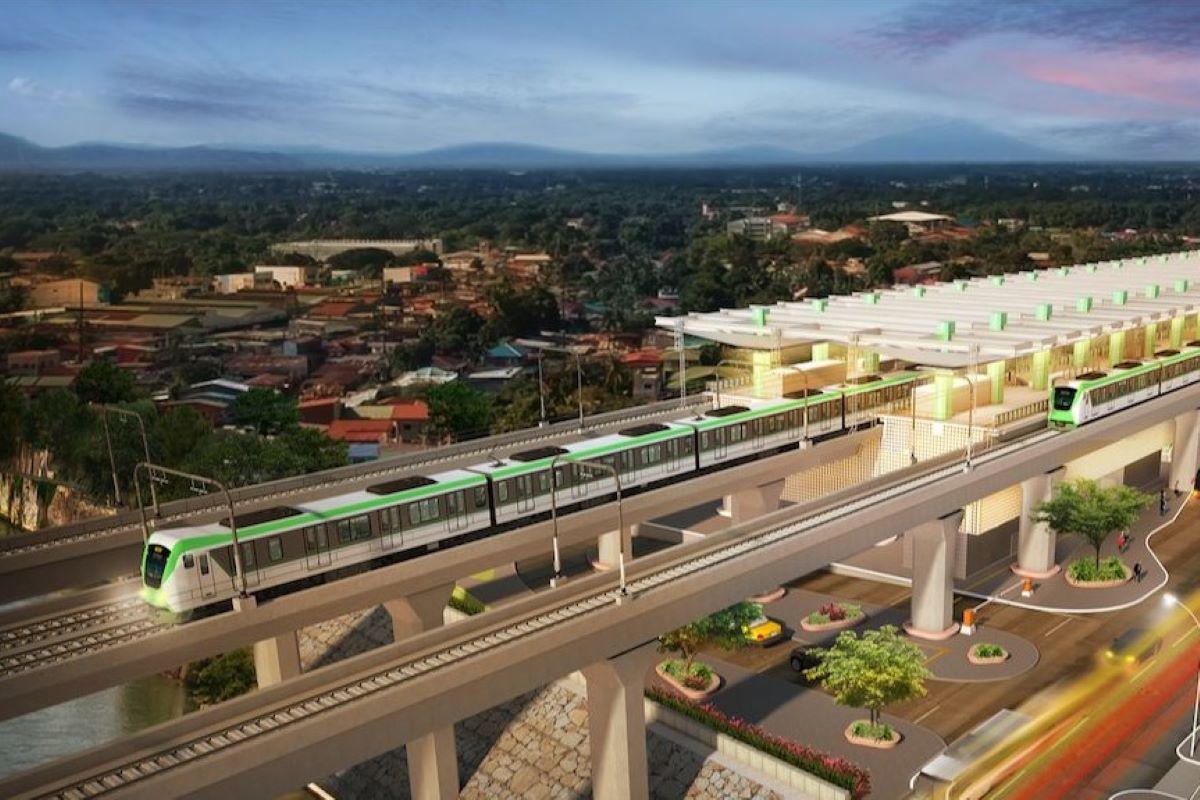$1.75-B 1st tranche loan deal for Manila-Calamba rail project signed, says DOF

The Philippine government and the Asian Development Bank (ADB) have signed a loan agreement for the first tranche of the $4.3-billion financing for South Commuter Railway project, the southern leg of the North-South Commuter Railway (NSCR) project, connecting Metro Manila and Calamba, Laguna.
The Philippine government and the Asian Development Bank (ADB) signed a loan agreement for the $1.75-billion first tranche of the $4.3-billion financing for the South Commuter Railway Project (Manila to Calamba line).
— Ted Cordero (@Ted_Cordero) June 17, 2022
????ADB pic.twitter.com/gHbkLU4aKG
In a statement on Friday, the Department of Finance (DOF) said Finance Secretary Carlos Dominguez III and ADB president Masatsugu Asakawa signed the agreement for the first-tranche loan amounting to $1.75 billion.
President Rodrigo Duterte witnessed the signing at a ceremony in Malacañan Palace on Thursday night.
It came on the heels of ADB's approval last week of the $4.3-billion loan financing accord for the South Commuter Railway (SCR) project or the Manila-Calamba line.
Also, DOF's statement indicates that the latest loan financing is the multilateral lender’s “infrastructure financing in the Asia and Pacific region to date.”
The Manila-Calamba railway has a total cost of $8.07 billion with the ADB extending $4.3 billion loan financing for the project through a multi-tranche facility while the Japan International Cooperation Agency (JICA) co-financing the project through another $1.67 billion loan.
On the other hand, the Philippine government will cover the rest of the balance of the project cost.
According to the DOF, another $1.75-billion loan is expected from ADB in 2024, representing the second tranche of the financing package. The final tranche of $800-million loan for the SCR project is scheduled to be given in 2026.
Running from Blumentritt Road in Manila all the way to Calamba, the SCR forms part of the 163-kilometer NSCR, as the project’s Phase 3 along with the Phase 1 Tutuban to Malolos, Bulacan line and Phase 2, the Malolos to Clark, Pampanga line.
Also, the ADB is financing the NSCR’s Phase 2 or the Malolos-Clark Line for up to $2.75 billion.
The Manila-Calamba line is expected to bring relief to thousands of Filipinos traveling between Manila and Calamba along with several nearby towns in Laguna as the railway is seen to cut travel time between the two points from about two hours by bus to less than an hour by rail.
With 18 stations, the project is also expected to improve connectivity in the public transport network by connecting with all existing rail-based public transport lines in Metro Manila. It includes a connecting line to the planned Metro Manila Subway, which will improve connectivity by operation of direct trains for passengers traveling from Calamba to Bonifacio Global City, Ortigas and Quezon City along the Metro Manila Subway.
More than 35,000 jobs will be created from the entire NSCR system during the construction stage, and over 3,000 permanent jobs during its operation.
The NSCR is among the Duterte administration’s infrastructure flagship projects under the "Build, Build, Build" initiative.
Finance chief Dominguez also cited the ADB’s high level of approved financing to the Philippines totaling over $30 billion since 1969, more than half of which was released under the Duterte administration.
Dominguez said this is “a vote of confidence for President Duterte’s economic development agenda and fiscal management.”
“This vote of confidence is also reinforced by the fact that in the last six years, other ADB-supported projects in the country have attracted from various partner institutions a total of $8.7 billion in co-financing, which represents 74% of the total sovereign co-financing from 1972 to 2022,” said the Finance chief.
The JICA, which has extended $4.5 billion to ADB’s projects in the Philippines since 2017, has been the largest of these co-financing partners, according to the DOF. —LBG, GMA News




